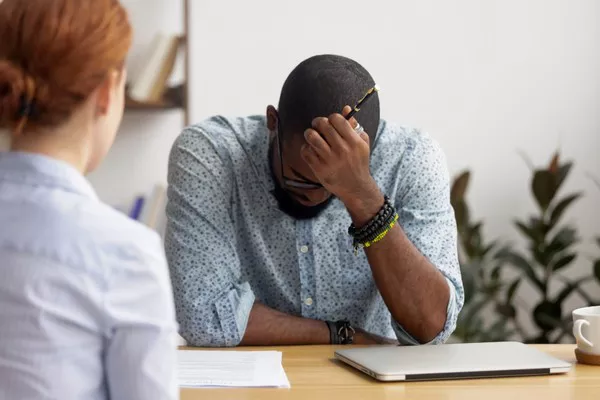Experiencing anxiety when leaving work is a common yet often misunderstood phenomenon. Many people expect to feel relief and relaxation at the end of their workday, but for some, this transition can trigger feelings of anxiety instead. This article explores the various factors contributing to post-work anxiety, its manifestations, and strategies to manage and alleviate it.
The Nature of Post-Work Anxiety
What Is Post-Work Anxiety?
Post-work anxiety refers to the feelings of unease, stress, and nervousness that arise after finishing the workday. Unlike typical work-related stress that occurs during work hours due to job responsibilities and pressures, post-work anxiety emerges when one is supposed to be unwinding and enjoying personal time. This type of anxiety can manifest in various forms, including physical symptoms like headaches or muscle tension, emotional symptoms such as irritability or sadness, and cognitive symptoms like racing thoughts or difficulty concentrating.
Common Symptoms of Post-Work Anxiety
Post-work anxiety can present itself through a range of symptoms, which may vary in intensity from person to person. Some common symptoms include:
- Persistent worry about work-related issues even after leaving the workplace
- Difficulty relaxing or unwinding after work hours
- Irritability or mood swings
- Physical symptoms like headaches, muscle tension, or gastrointestinal issues
- Sleep disturbances, such as difficulty falling asleep or staying asleep
- Feelings of dread or apprehension about returning to work the next day
Recognizing these symptoms is the first step in addressing and managing post-work anxiety effectively.
Contributing Factors to Post-Work Anxiety
Work Environment and Job Stress
One of the primary factors contributing to post-work anxiety is the nature of the work environment and job-related stress. High-pressure jobs, demanding workloads, and challenging work conditions can all contribute to feelings of anxiety. For instance, jobs that require constant problem-solving, decision-making, or dealing with high-stakes situations can leave individuals feeling mentally and emotionally drained by the end of the day.
Work-Life Balance
An imbalance between work and personal life is another significant contributor to post-work anxiety. When work consistently encroaches on personal time, it becomes challenging to establish boundaries and fully disengage from work-related thoughts and concerns. This imbalance can be exacerbated by technology, such as smartphones and laptops, which keep individuals tethered to work even outside of office hours.
Perfectionism and High Expectations
Individuals with perfectionist tendencies or those who set excessively high expectations for themselves are more prone to experiencing post-work anxiety. The pressure to meet these self-imposed standards can lead to constant worry about performance, productivity, and the fear of making mistakes. This mindset can make it difficult to switch off from work-related thoughts and fully relax after the workday ends.
Unresolved Work Issues
Leaving work with unresolved issues or incomplete tasks can also contribute to post-work anxiety. When individuals are unable to finish their work or address important matters before the end of the day, they may carry these concerns home with them, leading to persistent worry and stress. The anticipation of facing these unresolved issues the next day can further exacerbate anxiety.
Lack of Coping Mechanisms
The absence of effective coping mechanisms for managing work-related stress and anxiety can make post-work anxiety more pronounced. Without healthy strategies to decompress and relax after work, individuals may find it challenging to transition from a state of high alertness and stress to one of calm and relaxation.
Psychological and Emotional Factors
Fear of the Unknown
The transition from work to personal time often involves a shift from a structured and predictable environment to one that may be more uncertain and open-ended. For some individuals, this lack of structure can be anxiety-inducing. The fear of the unknown and the unpredictability of personal time can trigger feelings of unease and discomfort.
See Also: Is It Normal to Have New Job Anxiety?
Guilt and Responsibility
Feelings of guilt and responsibility can also contribute to post-work anxiety. Some individuals may feel guilty for taking time off work or for not being productive during their personal time. This guilt can stem from internalized beliefs about the importance of hard work and productivity, leading to anxiety when attempting to relax and enjoy personal activities.
Emotional Residue
Emotional residue refers to the lingering emotional impact of the workday. Stressful or challenging interactions with colleagues, supervisors, or clients can leave individuals feeling emotionally drained and anxious. These unresolved emotions can carry over into personal time, making it difficult to fully unwind and relax.
Personal Triggers
Individual differences in personality and emotional makeup can influence the experience of post-work anxiety. Personal triggers, such as past experiences, trauma, or specific stressors, can heighten feelings of anxiety when transitioning from work to personal time. Understanding and addressing these personal triggers is essential for managing post-work anxiety effectively.
Strategies for Managing Post-Work Anxiety
Establishing Boundaries
Creating clear boundaries between work and personal time is crucial for managing post-work anxiety. This involves setting specific work hours and adhering to them, as well as creating physical and mental separation between work and personal spaces. For example, designating a specific area in the home for work-related activities and avoiding work-related tasks in personal spaces can help reinforce this boundary.
Developing a Post-Work Routine
A consistent post-work routine can help signal to the body and mind that it is time to transition from work to relaxation. This routine can include activities such as exercise, meditation, reading, or engaging in hobbies. Establishing a routine that includes activities promoting relaxation and well-being can help reduce anxiety and improve overall mood.
Practicing Mindfulness and Relaxation Techniques
Mindfulness and relaxation techniques, such as deep breathing, progressive muscle relaxation, and guided imagery, can effectively reduce anxiety and promote relaxation. Incorporating these practices into a daily routine can help individuals manage stress and anxiety more effectively, both during and after work hours.
Addressing Unresolved Work Issues
Taking proactive steps to address unresolved work issues before leaving the workplace can help reduce post-work anxiety. This may involve creating a to-do list for the next day, prioritizing tasks, and communicating with colleagues or supervisors about ongoing concerns. By addressing these issues in advance, individuals can leave work feeling more in control and less anxious.
Seeking Support
Talking to friends, family members, or a mental health professional about post-work anxiety can provide valuable support and perspective. Sharing experiences and concerns with others can help alleviate feelings of isolation and provide practical advice for managing anxiety. Additionally, professional support can offer tailored strategies for coping with anxiety and improving overall mental health.
Setting Realistic Expectations
Setting realistic expectations for oneself and recognizing that it is okay to take time off work and prioritize self-care is essential for managing post-work anxiety. Embracing the idea that it is impossible to be productive all the time and that personal time is valuable and necessary can help reduce feelings of guilt and anxiety.
Incorporating Physical Activity
Regular physical activity has been shown to reduce stress and anxiety and improve overall well-being. Incorporating exercise into a daily routine can help release tension, improve mood, and promote relaxation. Whether through structured workouts or simple activities like walking or yoga, physical activity can be a powerful tool for managing post-work anxiety.
Limiting Technology Use
Limiting the use of technology, particularly work-related devices, during personal time can help reinforce boundaries between work and personal life. Setting specific times for checking emails or work messages and adhering to these boundaries can reduce the constant connection to work and allow for more effective relaxation and downtime.
Engaging in Hobbies and Leisure Activities
Pursuing hobbies and leisure activities that bring joy and fulfillment can help distract from work-related stress and promote relaxation. Engaging in creative or recreational activities can provide a sense of accomplishment and satisfaction, helping to reduce anxiety and improve overall mood.
Conclusion
Post-work anxiety is a common issue that many individuals face, often without understanding the underlying causes or how to address it. By recognizing the contributing factors, such as work environment, work-life balance, perfectionism, and unresolved work issues, individuals can take proactive steps to manage and alleviate their anxiety. Establishing boundaries, developing a post-work routine, practicing mindfulness and relaxation techniques, and seeking support are all effective strategies for reducing post-work anxiety and improving overall well-being. By prioritizing self-care and implementing these strategies, individuals can better navigate the transition from work to personal time and enjoy a more balanced and fulfilling life.
Related topics:




























